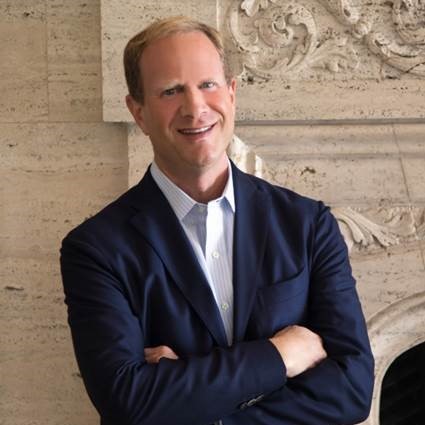An Investment Advisor Searches For The Right Path
For investment advisors like Michael Rosen, the Managing Partner and Chief Investment Officer at Angeles Investments, Job 1 is “Trying to understand the macroeconomic environment and the drivers in a portfolio and then trying to translate that into an explanation and a framework for understanding what’s going on and why the markets are reacting the way they are.”
Even before this year, Rosen, whose firm has evolved from a traditional consultancy to being principally an Outsourced CIO, said that task had been getting increasingly difficult: “In terms of what we see going on in the world and in the markets, there’s a huge disconnect. That was true in 2008 during the financial crisis and the aftermath. And it’s true now.” He asks, “How is it that markets have come back so strongly in April when all the news is terrible and getting worse? And how is it that in the part of our portfolio that was safe, correlations moved to one in a risk-off move?”
If understanding the markets is difficult, reacting to them is even more difficult. There have been three kinds of responses to February’s market corrections: Stay the course and rebalance to get back to the long term asset allocation; capitalize on opportunities to buy on the dip; or get out of the water and wait until things calm down. Rosen says, “I think there’s a small percentage of people who embrace “buy when there’s blood in the streets.’” And there are only few that are getting out of the markets.
 For most institutions, he says, rebalancing seems to be the desired path. But, he says, rebalancing is harder than ever. “Rebalancing was always difficult because, by definition, you’re buying when prices have fallen and selling when prices have gone up, and the natural instinct is ‘Prices have fallen because something bad has happened, so why would you buy?”. Nonetheless, he says, “Our clients have generally accepted the principle of rebalancing, at least intellectually.”
For most institutions, he says, rebalancing seems to be the desired path. But, he says, rebalancing is harder than ever. “Rebalancing was always difficult because, by definition, you’re buying when prices have fallen and selling when prices have gone up, and the natural instinct is ‘Prices have fallen because something bad has happened, so why would you buy?”. Nonetheless, he says, “Our clients have generally accepted the principle of rebalancing, at least intellectually.”
This year rebalancing not only raises intellectual issues but practical ones. “This particular market has been exceptional,” he says, “because it’s the fastest decline and the fastest rebound we’ve ever seen, so it’s been difficult for investors, particularly investment committees, to make a decision. When markets are moving 10% in a day, it’s hard to sort things out.”
To further muddy the waters, he says, “Many of our clients are endowments and foundations, and for them, this is a particularly difficult environment.” On the foundation side, “Most are seeing increased demand for grants,” Rosen says. People need more money, whether it’s in education or healthcare or social services or the arts, or any of these areas. The demand has gone up.”
Meanwhile, college and university endowments “are faced with a drop in revenue” because the market downturn and expected recession will inevitably reduce contributions from alumni and other donors while costs are rising and enrollment may decline at many schools. Similarly, in the world of health care endowments, there is a significant shortfall in revenues because elective procedures and doctor visits have been halted as hospitals focus on the pandemic.
For all of these institutions, Rosen adds: “There is a greater premium on liquidity” because they can expect to need more cash to dispense in pursuing their missions. While that can be accommodated amid rebalancing in the public markets, one investment area that may be affected is allocations to private markets. Rosen says, “Many are asking, ‘Is this an appropriate time to make new commitments in the private space.’ I could make the argument that it is from an investment perspective, but the cash needs may now drive that decision, and that’s where some of them are having the conversation.”
As these institutions confront their particularly difficult choices right now, consultants like Rosen know they are supposed to hand out smart pills. But, he says, when faced with an unprecedented pandemic, there are no easy remedies. “I think there’s a lot of uncertainty in the immediate future for a number of clients,” he says.
Michael Rosen is a member of II Network, to discuss the content of this article and further engage with him, comment below.
